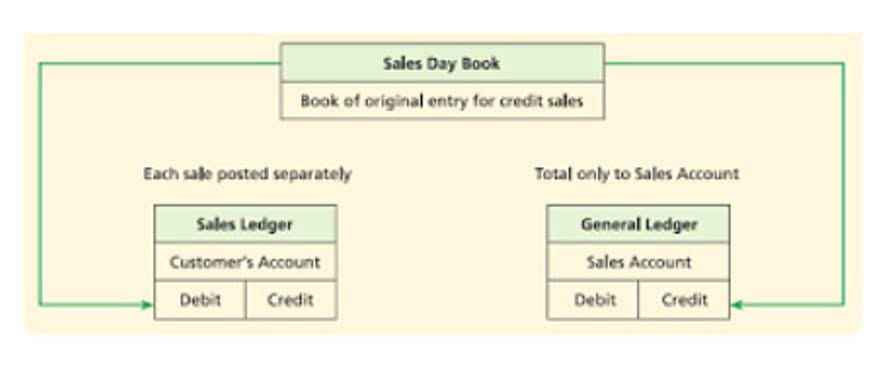
She has a bachelor’s degree in accounting/business from University of Delhi, India and a Certificate in Management from Indian Institute of Management, India. Pragya is the operational ‘glue’ and ‘grease’ that keeps GRANT together what is grant accounting and smooth running. Work hours for Grant Accountants may follow a standard business schedule, but periods close to financial reporting deadlines or grant application due dates can see an uptick in workload, requiring flexibility.
The Top Document Management Software for CFOs

My initial thoughts were to reduce the value of the asset and therefore any subsequent depreciation – however after reading your answer I can see this is not technically correct? I did not get qualified because I like to operate like the little bean and be free to account in a meaningful way for my clients. Black and white is very useful but sometimes grey can sometimes say it better. Your reply hits the nail on the head where you say that for Capital Allowances you deduct the grant from the cost of the asset. Once you have viewed this piece of content, to ensure you can access the content most relevant to you, please confirm your territory.

What are the main principles of grant accounting for nonprofits?

Check out this guide to grant accounting for even more strategies for allocating costs correctly. When we received our first grant it seemed to me that capital was being put into the company from outside and I treated it as such. SSAP 4 recognises that this treatment (along with option (a)) are capable of giving a true and fair view.
- This article will consider the accounting for government grants in light of some ambiguities that have cropped up for some practitioners.
- Another is that grants can have a significant impact on financial statements, so accountants need to be aware of this.
- Best practices in grant management range from cash management and accounting controls to records retention and reviewing the ROI of each grant and the entire program.
- Non-compliance can lead to severe penalties, including forfeiture of the grant, reputational damage, and legal consequences.
- Grant accounting, an often overlooked but vital aspect of financial management, forms the backbone of any project powered by grants.
What Is Grant Financial Management?
Each fund needs to be tracked separately from everything else in the accounting, almost as if it is its own separate bank account. For-profit accounting and nonprofit accounting are quite different, as most nonprofit leaders, financial officers, and board members understand. But a nonprofit organization has a mission it is working to fulfill, and part of the job is raising money to fulfill that mission. If a client does not comply with the conditions of the grant’s terms, then the grant-making body will more than likely have the right to recover all, or part, of the grant. To ensure your financial data remains clean, develop a standardized process for entering grants into your accounting system.
Rolling all the responsibilities to an inexperienced person not only jeopardizes the organization’s fiduciary responsibility but also the sustainability of the organization. The grant must be used according to the terms and conditions of the grant agreement to be classified as income. If the grant is not used for its specified purpose, then it may not meet the definition of income and would instead be classified as a liability. To qualify as income, the grant must be used for the purpose for which it was awarded.
Choosing the Right Accounting Software for Grant Management
- Capital grants are funds that are provided to assist in the acquisition, construction, renovation, repair of capital assets, or fixed assets.
- Next, establish clear record-keeping protocols for all grant-related financial transactions.
- Will that grant received for expenditure be tax free or company has to pay Corporation tax on grant income.
- It should outline the project’s goals, objectives, timelines, budget, and key personnel.
- Correct grant accounting practices are critical in ensuring compliance with funder requirements.
- Accurate financial tracking is crucial in grant-funded projects for many reasons.
- By implementing sound accounting practices, nonprofits can enhance transparency, compliance, and financial efficiency.
Unconditional grants offer nonprofits the autonomy to address their most pressing needs, but they also require a high level of responsibility and alignment with organizational goals. At Rooled, we understand the importance of making informed decisions about grant opportunities. We’re here to help you navigate the intricacies of unconditional grants and explore the diverse world of grant accounting to empower your nonprofit’s mission. Stay tuned as we continue our exploration of grant types and their impact on nonprofit financial management.
Ensure compliance with grant requirements
They provide targeted support for specific initiatives, but it’s crucial to carefully evaluate their compatibility with your organization’s mission, capacity, and long-term objectives. At Rooled, we’re here to help you navigate the intricacies of conditional grants and make informed decisions that drive your nonprofit’s success. Stay tuned as we explore more grant types and their implications in our journey through the world of grant accounting. For more effective grant reporting, make sure your grant management for nonprofits accounting software for grant management has the ability to segregate the grant activity and the purpose of the grant. Your accounting system must be able to track a grant’s budget and actual activity to ensure compliance and proper grant management. An accounting system that is not designed for grant management will create extra work and may not provide proper transparency and stewardship of funds.

Everything you need to know about requirements management
- The National Grants Management Association (NGMA) offers tools and resources for grants professionals in government and nonprofits.
- The nonprofit would also have to show that they used the money for the intended purpose during the specified period of time.
- Geotechnical experience includes site investigation, soil and rock testing, ground improvement, forensic engineering, support of excavation design, foundation design, field monitoring.
- Grants can have a profound impact on your nonprofit’s financial statements if most of your revenue comes from grants.
- Transitioning into a Chief Financial Officer (CFO) role is possible for those who excel in financial stewardship of grant funds and possess a broad understanding of organizational financial management.
- It enables you to manage your grant programs in one place, set up workflows in a snap, and, most importantly, hit your goals.
To demonstrate that the funds are used accordingly, your organization needs to appropriately report on your financial statements how those dollars are being spent. Any expenses that qualify under the grant designation need to be clearly tracked. Any grant money an organization receives needs to be set apart as its own fund so it can be tracked accurately.